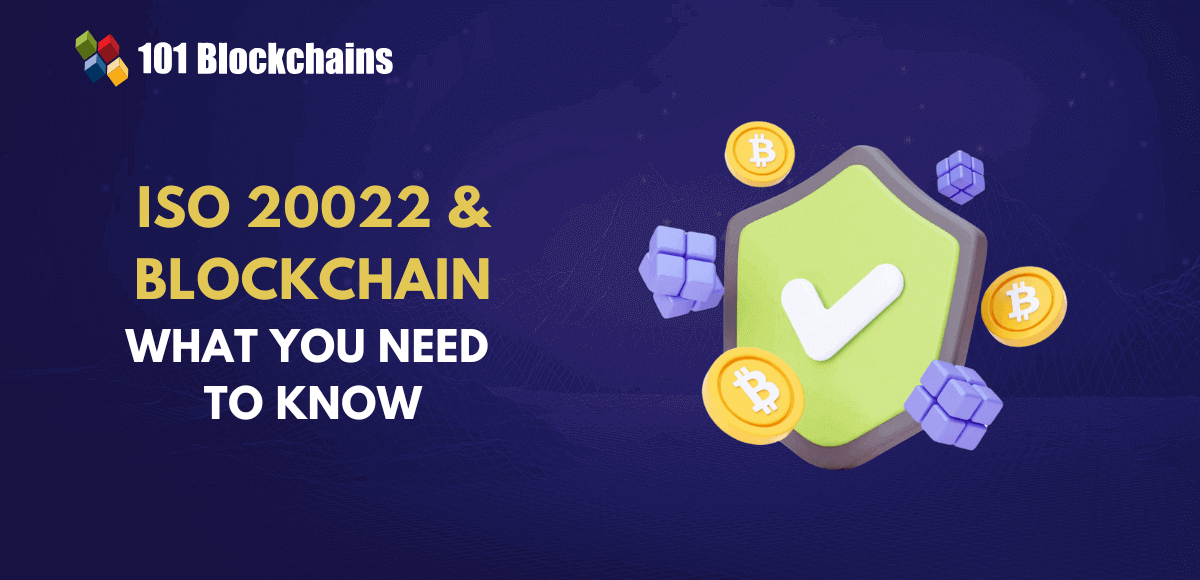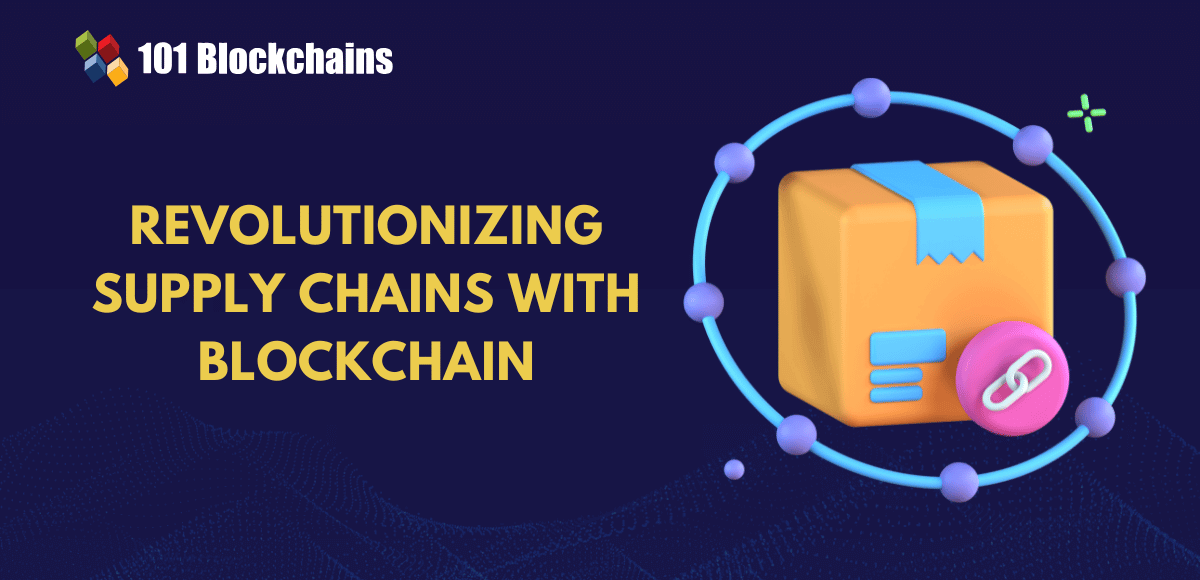Learn how blockchain truly works, master key definitions, and uncover what makes smart contracts so "smart." Dive into the fundamentals, gain valuable insights, and start your blockchain journey today!
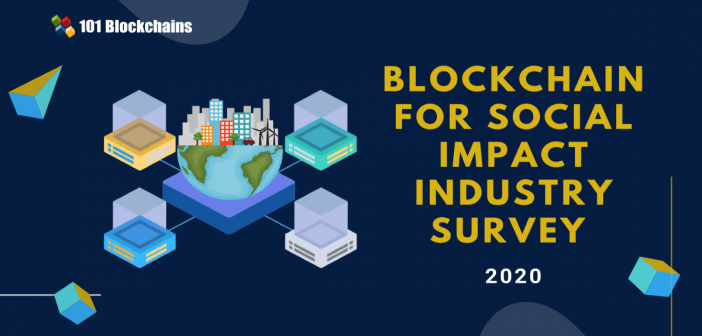
- Blockchain
Aviv Lichtigstein
- on December 09, 2020
Blockchain For Social Impact Industry Survey 2020
In the last decade, we’ve seen more and more enterprises adopting blockchain technology. Faster transactions, better data security, transparency, and lower operational costs played the pivotal roles behind such transition. Yet, skepticism remains.
Organizations and entrepreneurs are curious regarding the long-term social impact and sustainability of blockchain technology. We decided to conduct a survey regarding this issue to understand the sentiment of the industry. The survey is based on the respondents coming from North America, Europe, and the Asia Pacific, the hotbeds of enterprise blockchain initiatives.
Also, we want to thank Oracle for being our survey partner.
Survey Partner

Impact of Blockchain Technology: From Disruptive to Sustainable
Despite having the “disruptive” tag, blockchain technology offers better sustainability over traditional practices. From tech industries to health care industries, we’re seeing the continued growth of blockchain implementation. Moreover, the skeptics who thought blockchain to be another dot-com bubble are accepting the change and approving feasibility.
That being said, we need to understand people’s views regarding the issue. Let’s go through the key findings of the survey and analyze the results from the angle of social impact and sustainability.
Money Might NOT be the Currency of the Future
The United Nations General Assembly came up with 17 interlinked Sustainable Development Goals (SDG) to create a sustainable future by 2030. The UN SDG proposed new types of currency that might prevail over the traditional money. These alternates include – data, ideology, and sentiment.
Our survey suggests that data will most likely be the currency of the future. Also, humane traits like ideology or sentiment have little to no chance of offering financial value.
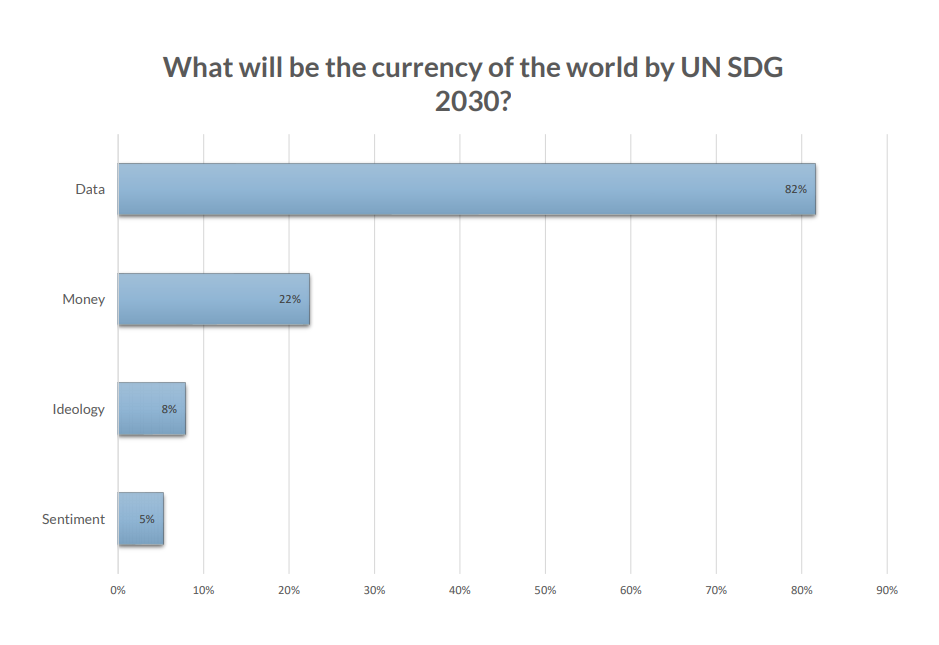
The fact that people prioritizing data over money only strengthens the case for blockchain technology. How? If data becomes the currency of the future, then transaction speed, security, transparency will hold even more significance in the future. And these three features are the key traits of blockchain technology.
[optin-monster slug=”dblc9eeuv9nbqab8iavy”]
All Aspects of Sustainability Have Equal Significance
Sustainability is a broad concept that holds different meanings from different perspectives. All-encompassing sustainability is hard to achieve as various parameters often oppose each other.
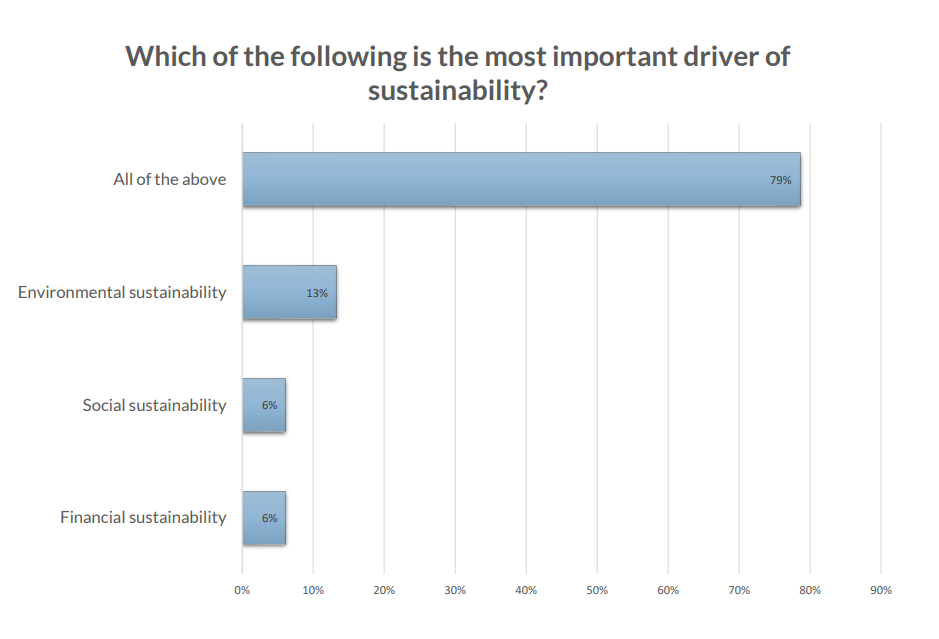
When we asked survey participants regarding the “most important driver” of sustainability, they had opted to favor all of them. The newer generations feel the urge to achieve environmental and social sustainability, along with financial sustainability. In the last century, decision-makers focused on social and financial stability only.
So, how can blockchain impact all of the sustainability drivers?
We all are on the page regarding the financial impact of blockchain. Current industry practices and feasible use cases show that blockchain proposes better financial values compared to the traditional methodologies.
As we shift from the centralized system to the decentralized environment of blockchain, we will ensure social stability. Individuals will become “equal and active” members of the system rather than depending on the authoritarian centralized system. Thus, we can achieve social sustainability through blockchain.
Finally comes the issue of environmental sustainability, and that too is possible with blockchain technology. Blockchain proposes the possibility of a cashless and paperless society for all of mankind. In addition, blockchain-based traceability systems will detect the provenance of goods and quality of processes. When that happens, we will witness a drastic reduction in carbon footprint.
Blockchain Projects for Physical Goods Are on the Rise
People were only curious about witnessing the impact of various blockchain projects for physical goods. But things have been changing at a rapid pace. Especially, different Decentralized Finance (DeFi) projects are proposing creative solutions.
For example, Boson Protocol, a DeFi project is working to provide a solution to redeem blockchain tokens for their physical counterparts in the real-world. Their goal is to allow users to buy physical goods/services directly through smart contracts in a completely permissionless way.
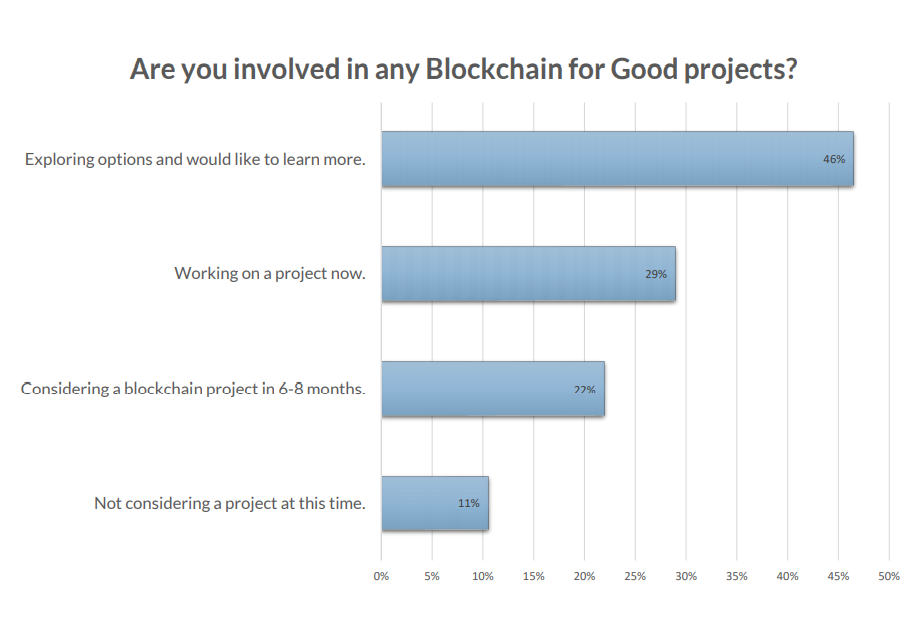
Upon asking, almost one-third of the respondents replied that they’re working on such projects right now. The majority of the rest are learning, exploring, or considering starting a project in a short time.
Now, what do these numbers translate to?
Social impact and sustainability.
The increasing number of blockchain projects for physical goods suggests that individuals are now more confident in the technology. These projects are encouraging more people to adopt technology like a chain reaction. This trend only suggests that blockchain will have a significant social impact in the upcoming years.
User Education and Regulation are Still the Key Factors
Blockchain is suggesting alternatives to the concepts that have been going on for generations. Despite the plethora of success stories and implementation, our mental rigidity opposes the adoption of blockchain technology on a massive scale.
Four key factors like user education, regulation, technology infrastructure, and User Experience/ User Interface (UX/UI) can enable blockchain to create a significant social impact. However, these also are hindering factors against the blockchain.
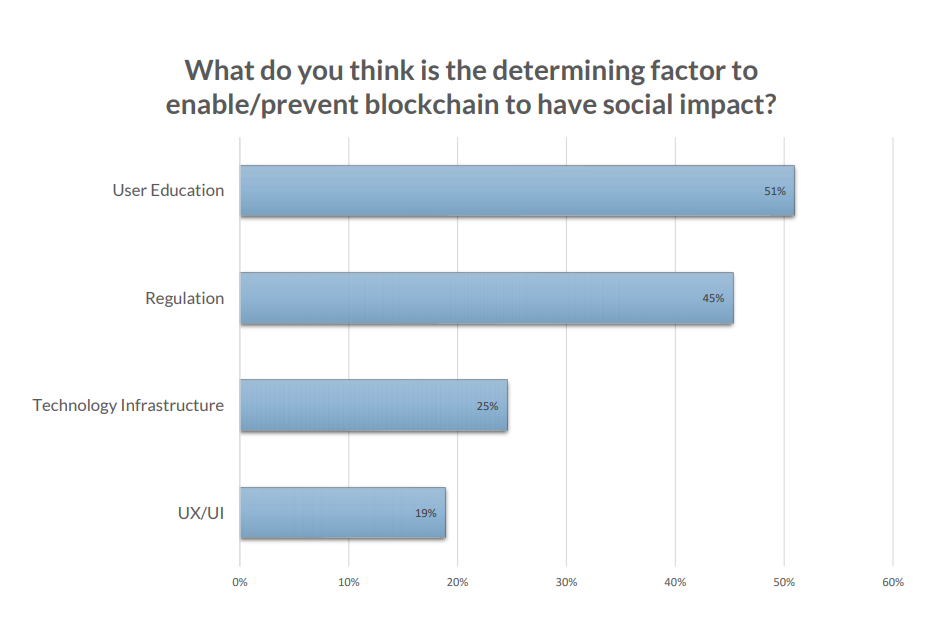
Survey participants feel that user education and regulation are key, while the former one presents slightly more significance.
We also feel the same way.
Despite being two different entities, mass people still confuse blockchain technology with cryptocurrency (mostly Bitcoin). People even refer to this technology as “internet money.”
So, user education is the deciding factor for blockchain to create a social impact on a global scale. At the same time, there should be some form of regulatory guidelines with clear standards, practices, and industry protocols. It would help the common people to have a better understanding, thus leading to a sustainable environment.
About Oracle Blockchain
Oracle makes blockchain adoption easy and quick for enterprises by providing market-leading Oracle Blockchain Platform in the cloud and on-premises for both customers and developers who want to build their own solutions.
For more information, visit: oracle.com/blockchain.


